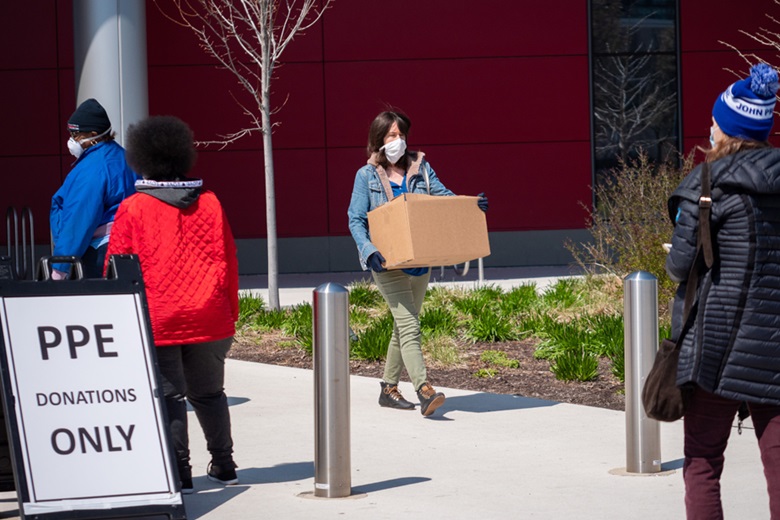Promoting Trade in Medical Goods Will Save Lives

Active trade policy responses are critical for alleviating the burden on healthcare systems, according to a new policy brief by the APEC Policy Support Unit.
The policy brief, titled “Promoting Trade in Medical Goods to Tackle COVID-19 Challenges,” highlights the importance of acting collectively to reduce or eliminate tariffs on medical goods permanently.
“One thing that we have already learned from the COVID-19 pandemic is that readiness, speed and coordination are crucial when it comes to health emergencies,” said the APEC Secretariat’s Executive Director, Dr Rebecca Sta Maria. “Ensuring that trade policy is in place, providing access to the much-needed medical goods will save lives.”
While most APEC economies apply low average most-favored-nation (MFN) tariff rates to medicines and medical equipment, the policy brief identifies higher tariffs that are being put in place for a range of medical goods in APEC economies, especially medical supplies and personal protective products.
Ethyl alcohol with the strength of 80 percent used for hygiene purposes has the highest average tariff in APEC of 77 percent, among all medical goods.
In addition, essential medical supplies worn by medical staff such as rubber gloves and disposable protective clothing, as well as personal protective products such as face masks, hand soap and other cleaning products, are subjected to average tariff rates above 5 percent within APEC.
Non-tariff measures could also prevent the smooth flow of medical goods across borders. The policy brief underlines a recent uptick of protective measures that are being implemented by some governments around the world as a reaction to secure stocks, such as export restrictions on medical supplies, equipment and protective gear.
“It is important for APEC economies to consider initiatives to avoid the implementation of any unnecessary trade-restrictive measures to trade in medical goods, in particular regarding export bans and restrictions,” said Carlos Kuriyama, Senior Analyst at the Policy Support Unit.
The policy brief indicates that export restrictions on medical goods not only restrict access to those products, particularly to those economies without the facilities or with a limited capacity to produce any of these essential medical goods, but also they could increase prices and affect the production chain.
“APEC can facilitate the flow of medical goods by lowering tariffs following the model used to reduce tariffs on environmental goods, and by considering a commitment to refrain from implementing unnecessary trade-restrictive measures affecting medical goods,” observed Kuriyama.
The COVID-19 pandemic has also triggered an increase of internal movement restriction orders and cross-border restrictions globally, disrupting supply lines and adding pressure to businesses and people’s livelihoods.
Given the importance of such products today, the policy brief also recommends APEC economies to work closely in keeping supply lines open for the provision of medical and other essential goods.
Download the policy brief, Promoting Trade in Medical Goods to Tackle COVID-19 Challenges
# # #
For further details, please contact:
Masyitha Baziad +65 9751 2146 at [email protected]
Michael Chapnick +65 9647 4847 at [email protected]
More on APEC meetings, events, projects and publications can be found on www.apec.org. You can also follow APEC on Twitter and join us on Facebook, LinkedIn.

